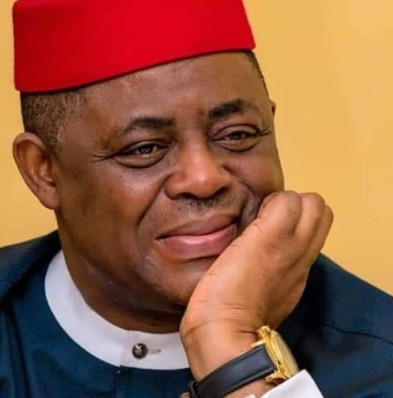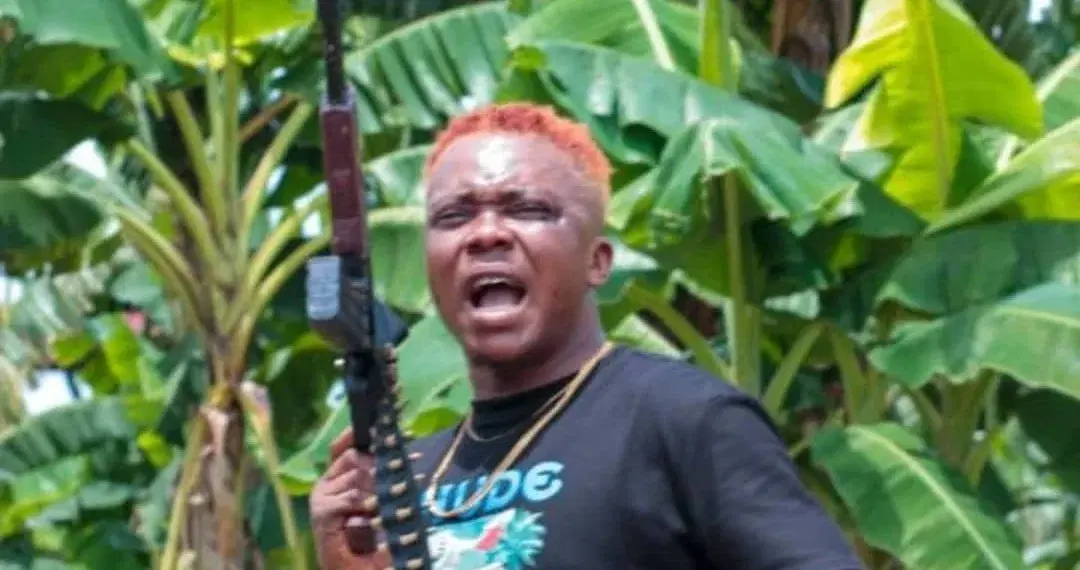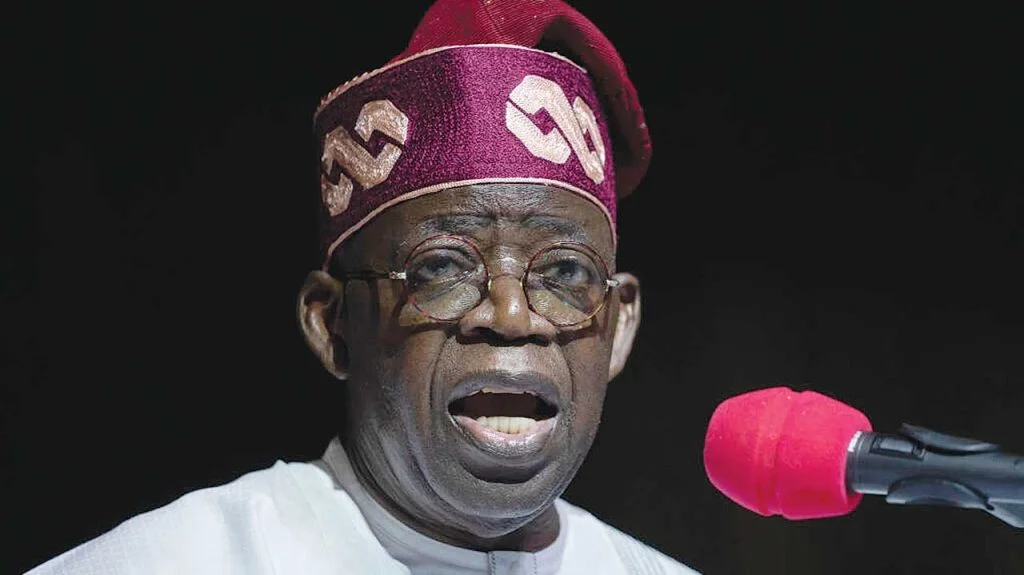celebrity radar - gossips
TEN YEARS AFTER LAMIDI ADEDIBU
Published
6 years agoon

Related
Sahara weekly online is published by First Sahara weekly international. contact [email protected]

You may like
celebrity radar - gossips
RE NATIONWIDE HARDSHIP PROTEST: A TIMELY WARNING
Published
17 hours agoon
July 26, 2024
RE NATIONWIDE HARDSHIP PROTEST: A TIMELY WARNING.
Related
celebrity radar - gossips
Billionaire kidnapper: Untold story of Henry Odenigbo’s exploits as Nollywood actor, producer
Published
18 hours agoon
July 26, 2024
Billionaire kidnapper: Untold story of Henry Odenigbo’s exploits as Nollywood actor, producer
Being a kidnapper was something that never crossed our minds – Rivers AGN Chairman
•Odenigbo featured only in his own movies, never harassed or owned actors
•I’m scared, says Kelvin Ikeduba who acted in one of his movies ‘Born in the Ghetto’
Fear, shock, and disbelief are the words to describe the reactions of many filmmakers and movie stars in Rivers State where the slain billionaire kidnapper, Henry Odenigbo, held sway as an actor and film producer before he met his Waterloo on July 4 in Lagos.
Ode, as he was popularly called, was the ring leader of a gang of nine kidnappers who targeted wealthy individuals in Lagos. They were killed after a shootout with the police at Ladipo, Mushin area of Lagos.
While he was alive, the late kidnapper who was seen as one of the biggest financiers of movie productions in Rivers, was the owner of Port-Harcourt-based Aso-Rich Production.
But unknown to movie makers in the state, Ode was a kidnap kingpin who was using the production outfit as a camouflage to carry out his nefarious activities.
Fortunately, actors were not his main target.
Narrating how the late billionaire kidnapper, who hailed from Imo State came to be known as an actor and film producer, the Chairman of Actors Guild of Nigeria,AGN, Rivers State chapter, Dr. Ken Osunwa, in a chat with Vanguard, said the late Ode was never close to anybody in the industry, adding that he only featured in his own-sponsored movies.
According to him, the late kidnapper was never a member of AGN, Rivers State, nor a member of Association of Movie Producers, AMP, Rivers State chapter.
Speaking further, Osunwa, who noted that Odenigbo never attended any of their meetings or events, said: “He hailed from Imo State and came to set up a movie production outfit in PH. I’ve already done a disclaimer when the news got to me and people were talking about him as an actor.
“Yes, he was acting in his own-sponsored movies and not practising in Nollywood, Rivers State, in the sense that he never featured in other people’s productions.
“To the best of my knowledge, Ode never had an issue with other practitioners in the state. I was never called to settle issues with him and others.’’
He, however, acknowledged the fact that the late billionaire kidnapper never owed any actor, director or producers who worked for him.
“He was bringing different actors, producers and directors to work for him and at the end of it, he paid off everyone.
“He invested in the Nollywood industry like any other investor. Nobody knew his source of wealth and when I received the news of his killing by the police in Lagos, I was very surprised. I thank God that all our actors who were working with him are safe and fine. Nobody was missing and from the report from his production, he was not owing anybody.”
Besides producing movies, the late Henry Odenigbo also had a Film Academy, called Ason Rich Movie Academy, where he trained cameramen, scriptwriters, actors, producers and directors, sound mixers, make-up artists, and production managers, among others.
Before his death, Ode was promoting a one-month intensive training opportunity for youths on his Instagram page, which was supposed to kick off on Monday, August 5, and run till August 31, in Rivers. But that dream is gone with his exit.
Recounting how Ode recently completed his last production before his exit, Osunwa said he (Henry Odenigbo) as a kidnapper, was something that never crossed their minds in Rivers State, adding ‘’This is because he was nice to the people that worked for him.”
Meanwhile, as a way of stopping a recurrence of the ugly incident in future, Osunwa said his group had started profiling every production house in Rivers State to know their identities as well and get acquainted with them, to monitor closely whatever they were doing.
“We have also started sensitizing our members on how to identify fake production houses in the state. Like in every sector of our society, there are different kinds of human beings operating with a different mindset. We must fight them to avoid ruining our sector,” Osunwa added.
One of the popular actors, Kelvin Ikeduba, who featured in one of the late kidnapper’s movies, “Born in the Ghetto” which was released early last month, said he was scared when he heard the news of Odenigbo’s death.
He was thankful that nothing happened to him while on the set of the deceased’s movie.
The actor said: “I only featured in one of his movies, ‘Born in the Ghetto.’ They would have killed them before now. I was scared. I went to work in PH, what if there was no job and they came up with a plan? Who knows!
‘’I am very happy with the news of their death. For me, it’s a big testimony. Do you know what it means when someone comes every day to pick you up in the hotel without you knowing what they are doing for a living?’’
He added that the director, Ifeanyi Akanaga, invited him to be part of the production.
However, disassociating Nollywood from the slain kidnapper, the President of the Directors Guild of Nigeria, DGN, Dr Victor Okhai, said what happened was a call for ‘a united Nollywood’, where they would be privileged to know who is who in the industry.
He argued that while bad eggs were also found in other sectors, the slain kidnapper was never a member of any guild in Nollywood.
Similarly, the President of the Association of Movie Practitioners, AMPRAC, Ifeanyi Azodo, said checks on AMPRAC’s database showed that the late kidnapper was never a member of the association, adding that people of questionable character were never admitted into the association
In a disclaimer, Osunwa dissociated the AGN from the filmmaker, Odenigbo alongside three other persons who claimed to be film practitioners.
The guild, in a statement, said the three persons who died in the shootout with the police at Ladipo were not their members.
The statement read: “The Rivers State chapter of the Actors Guild of Nigeria at this moment, disclaims any affiliation with the individuals who tragically lost their lives in a recent kidnap incident in Lagos. Specifically, Prince Henry Asonna (Executive Producer of Aso Rich), Angel Emanuzo (Associate Producer), Chris Ahaneku (Logistics Manager-Aso Rich), and Jerry Eze (Camera Assistant) were not members of our guild. They were not part of our organization.
“They have never been associated with our guild events and are not on our register. They were not affiliated with us, to the best of my knowledge, and we condemn any false associations and news making the rounds that AGN members from Rivers State were involved in the kidnapping.”
Veteran actor, Kanayo O. Kanayo, also cautioned the public on his Instagram page against referring to the slain kidnapper as a movie producer.
In the same vein, AGN’s Financial Secretary, Emeka Duru, frowned on associating the slain kidnappers with Nollywood, saying “Because they made a movie is not doing justice to the industry.”
Meanwhile, in 2024 alone, Odenigbo’s outfit, Ason-Rich Movie Production, produced over ten films, including ‘Born in the Ghetto’, ‘Love At The Pool’, ‘My Half’, ‘Little Top Up’, ‘Regards for Love’, “Wild Love”, ‘Clue Girl’, ‘Blind Blood’, ‘To Forgive’, “Sharon’s Fate”, which featured Yul Edochie, and ‘Bethlehem.’
In 2022, he produced such movies as “Royal Ties” among others.
The late kidnapper worked with famous actors, such as Yul Edochie, Kelvin Ikeduba, and Eve Esin. But checks also revealed that he mostly worked with fast-rising actors or relatively unknown faces in the industry.
As an actor who was always posting all his movie jackets on Instagram, the late kidnapper portrayed bad-boy roles and wielded guns in movies, as seen in one of his most recent roles in “Blind Blood” as posted on his Instagram page on April 26. He was also honoured on March 16, 2024, when organizers of Nollywood Indigenous Filmmakers of Nigeria, NIFMON, awarded him the ‘Best Filmmaker in Port Harcourt’.
Weeks later, on March 31, E-flex named him Nolly TV’s Best Grassroot Filmmaker for 2024/2025.
By By Benjamin Njoku
@VANGUARD
Related
celebrity radar - gossips
Tinubu Issues Stern Warning Against Protest With Destructive Tendencies
Published
19 hours agoon
July 26, 2024
Tinubu Issues Stern Warning Against Protest With Destructive Tendencies
President Bola Tinubu on Thursday in Abuja emphasized the importance of sustaining democracy, its norms and institutions, noting that protests are an integral part of democracy but that no government will condone demonstrations that lead to the destruction of lives and property.
The President spoke at the Presidential Villa when he received a Letter of Credence from the newly appointed United States Ambassador to Nigeria, Mr Richard Mills Jr.
”Our relationship with America is rich. We believe in democracy and freedom. Some of your predecessors worked hard during our transition to democracy, and we remember the likes of Ambassador Howard Jeter.
”We look forward to Nigeria and the United States continuously working to expand cooperation on shared goals and democratic values.
”During the military era, we made our voices heard against dictatorship, and I was part of the group that engaged in peaceful protests without resorting to the destruction of property.
”We have worked hard to ensure 25 years of unbroken democracy and I will continue to maintain this democracy.
”In as much as we believe that demonstrations are part of democracy, we will never encourage any protests that lead to the destruction of lives and property,” the President stated.
Welcoming the U.S. State Department’s acknowledgement of Nigeria’s strategic role on the continent as Africa’s largest democracy, President Tinubu called on the U.S. government to pay more attention to Africa.
”Nigeria is ready to play its role as the largest democracy in Africa that is worthy of emulation to other African countries, but we need more U.S. partnership on the continent that is beneficial to both sides.
”We believe in freedom, and we are providing the leadership to make Nigeria’s economy grow,” the President said.
Ambassador Mills affirmed U.S. support for Nigeria’s democracy and pledged support for bigger roles for Nigeria in the international arena.
”Nigeria is crucial to the United States because we share democratic values, and we are ready to give you all the support.
”I am here to make sure that the relationship blossoms both on democracy and the economic side,” Ambassador Mills said.
Related
Cover Of The Week

- Economic Community of West African States (ECOWAS) Centre for Renewable Energy and Energy Efficiency (ECREEE) Inaugurates Solarization of Three Hospitals in Ghana July 26, 2024
- Tunisia: Amnesty International’s Secretary General denounces rollback of human rights upon concluding four-day visit July 26, 2024
- Merck Foundation Chairman & Chief Executive Officer (CEO) meet Botswana President & First Lady to launch long term partnership to build healthcare capacity, stop infertility Stigma & Gender-based Violence (GBV) and Support girl education in Botswana July 26, 2024
- Uganda: Children’s Parliament calls for end to hunger, malnutrition July 26, 2024
- Uganda: Aleper eulogised for uniting Karamoja July 26, 2024
- Call for the 2024-2025 Fellowship for Young African Professionals July 26, 2024
- Uganda: Northern Corridor Integration Projects Drive Regional Progress July 26, 2024
- South Sudan eyes Water Convention accession for stronger water governance and development opportunities July 26, 2024
- Strengthening Fisheries Cooperation: Indonesian Ambassador Meets with Angolan Minister of Fisheries July 26, 2024
- Democratic Republic of the Congo: European Union (EU) lists nine individuals and one entity July 26, 2024
- Economic Community of West African States (ECOWAS) Centre for Renewable Energy and Energy Efficiency (ECREEE) Inaugurates Solarization of Three Hospitals in Ghana July 26, 2024
- Tunisia: Amnesty International’s Secretary General denounces rollback of human rights upon concluding four-day visit July 26, 2024
- Merck Foundation Chairman & Chief Executive Officer (CEO) meet Botswana President & First Lady to launch long term partnership to build healthcare capacity, stop infertility Stigma & Gender-based Violence (GBV) and Support girl education in Botswana July 26, 2024
- Uganda: Children’s Parliament calls for end to hunger, malnutrition July 26, 2024
- Uganda: Aleper eulogised for uniting Karamoja July 26, 2024
- Call for the 2024-2025 Fellowship for Young African Professionals July 26, 2024
- Uganda: Northern Corridor Integration Projects Drive Regional Progress July 26, 2024
Trending
-

 Business6 months ago
Business6 months agoFintech Guru, Jesam Micheal Opens Biggest Apple Store In Africa, Reveals Why
-

 Business6 months ago
Business6 months agoFintech Guru, Jesam Micheal Opens Biggest Apple Store In Lagos On Saturday (Video)
-

 celebrity radar - gossips6 months ago
celebrity radar - gossips6 months agoTop Lagos Monarch Receives Jesam Micheal, Urges Him on First AAS Solar Powered Estate Project
-

 celebrity radar - gossips6 months ago
celebrity radar - gossips6 months agoMFM WINS AGAIN AS US COURT SLAMS BLOGGER, FUNKE ASHEKUN WITH 50,000 DOLLARS FOR SLANDERING CHURCH AND DR OLUKOYA









You must be logged in to post a comment Login